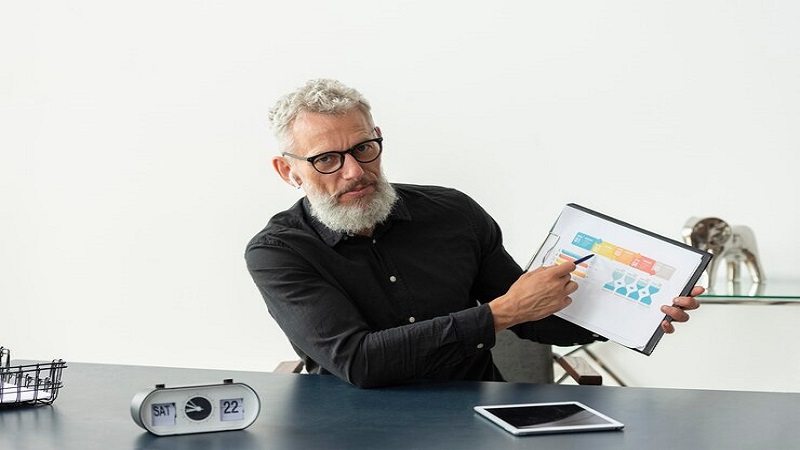In the epic poem Beowulf, Grendel is one of the central antagonists, a creature who terrorizes the mead hall of King Hrothgar. Grendel is a complex character, often portrayed as a mere monster, but his perspective is much richer and deeper. Understanding Grendel’s perspective requires delving into his emotions, motivations, and the way he perceives the world around him. When analyzing this, a key question emerges: which statement best describes Grendel’s perspective? This article explores Grendel’s perspective through various lenses, ultimately answering which statement best describes Grendel’s perspective.
The Isolation of Grendel
Grendel’s isolation from the human world heavily shapes his perspective. The poem describes him as a descendant of Cain, immediately setting him apart from the rest of society. His lineage curses him to a life of solitude, banishing him from the joys and camaraderie of human existence. This isolation affects him not only physically but also emotionally and spiritually. Grendel watches the humans from afar, especially during the celebrations in Hrothgar’s hall, and he feels a deep sense of longing and envy.When considering which statement best describes Grendel’s perspective, it becomes clear that his isolation leads him to view the world with hostility.
Grendel’s Envy and Resentment
Grendel’s perspective is also defined by envy and resentment towards humans. He sees their joy, their sense of community, and their celebrations, and it fuels his anger. This envy stems from his deep desire to be part of that world, yet knowing he never can be. His resentment grows with every celebration he hears from the mead hall, every song of triumph and unity that excludes him. Which statement best describes Grendel’s perspective? It might be that his envy and unfulfilled desires lead him to destructive actions, driven by a deep-seated bitterness.
Grendel as a Tragic Figure
Although Grendel commits monstrous actions, many see him as a tragic figure. He views the world with sorrow and despair. He didn’t choose to be an outcast; his fate was determined by his ancestry. Grendel attacks humans as a cry for recognition, desperately attempting to assert his existence in a world that has rejected him. When considering which statement best describes Grendel’s perspective, one might argue that he is not just a villain but a deeply misunderstood being trapped by his circumstances. Awareness of his own monstrosity further compounds this tragedy, adding a layer of self-loathing to his perspective.
Grendel’s Perspective on Humanity
Grendel’s view of humanity is complex and ambivalent. On one hand, he despises them for their exclusionary practices and their perceived superiority. On the other hand, he is fascinated by them, particularly by their ability to create meaning through language, art, and community. Grendel’s perspective reveals a creature who is both repelled and attracted to humanity. Which statement best describes Grendel’s perspective in this context? It is that he hates what he cannot be part of, yet he cannot completely disengage from it.
The Role of Fate in Grendel’s Perspective
Fate plays a significant role in shaping Grendel’s perspective. In the world of Beowulf, fate is an inescapable force that governs the lives of all beings. Grendel is acutely aware of his doomed existence, and this awareness colors his view of the world. He knows that his actions will ultimately lead to his destruction, yet he is powerless to change his fate. When considering which statement best describes Grendel’s perspective, it’s evident that his fatalism adds a layer of nihilism to his view. His perspective is one of resignation mixed with a futile struggle against the inevitable.
Grendel’s Perspective in Contrast with Beowulf’s
Grendel’s perspective is starkly contrasted with that of Beowulf, the hero of the epic. While Beowulf represents the ideals of bravery, honor, and loyalty, Grendel embodies the darker aspects of existence, such as envy, isolation, and despair. Which statement best describes Grendel’s perspective in relation to Beowulf? It is that Grendel sees in Beowulf everything he is not, deepening his sense of alienation. This contrast highlights the broader themes of the epic, such as the struggle between good and evil, light and darkness, and civilization versus chaos.
Grendel’s Perspective in Modern Interpretations
Which statement best describes Grendel’s perspective in this modern context? It might be that Grendel’s perspective is one of existential angst, questioning the meaning of life, the nature of reality, and his place in the universe. This modern portrayal of Grendel suggests that his perspective is not just that of a mindless monster, but of a being grappling with profound existential questions.
The Best Statement to Describe Grendel’s Perspective
After examining the various aspects of Grendel’s perspective, the statement that best describes it would be: “Grendel views the world with a mixture of envy, resentment, and existential despair, driven by his isolation and his doomed fate.” This statement encapsulates the complexity of Grendel’s perspective.
Conclusion
Grendel’s perspective in Beowulf is multi-faceted and deeply tragic. He is not just a monster, but a being shaped by isolation, envy, and existential despair. Which statement best describes Grendel’s perspective? It is one that reveals the complexities of his character, making him a more sympathetic figure despite his actions. Understanding Grendel’s perspective adds depth to the epic of Beowulf and challenges the reader to see beyond the surface of good versus evil. Ultimately, when asking which statement best describes Grendel’s perspective, it’s a powerful reminder of the pain of exclusion and the destructive power of unfulfilled desires.
